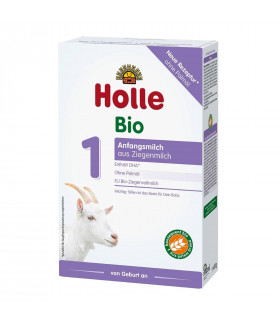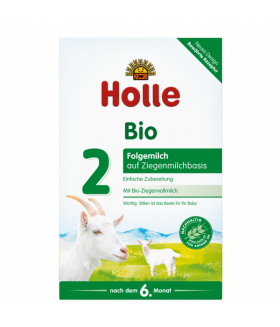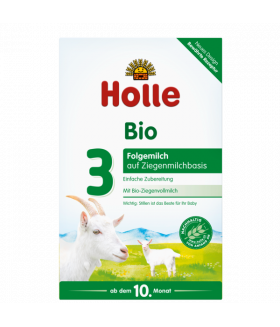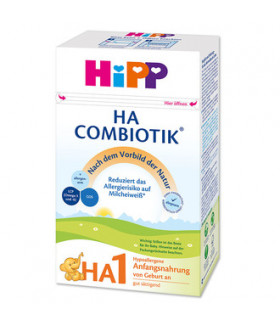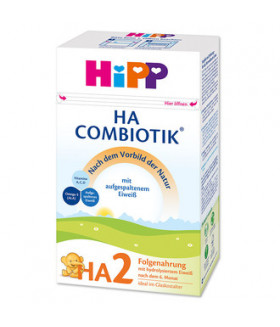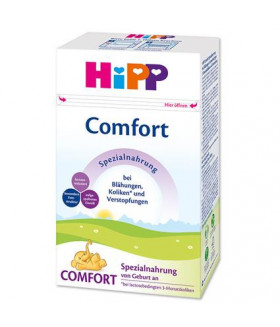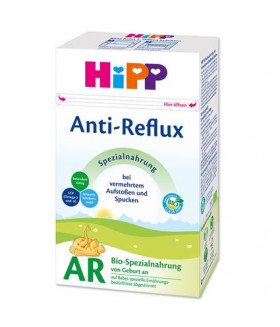Best Baby Formula For Colic
Contents:
- What is Colic?
- Signs of colic include
- Possible Causes of Colic
- What is the Best Baby Formula For Colic?
- Holle Goat Milk Formula
- HiPP Hypoallergenic (HA) Formula
- HiPP Comfort Formula
- Products of Hipp Formula
What is Colic?
Babies are known to cry, fuss, and have gas. Most of the time it is temporary and you enjoy a happy and comfortable baby. Colic, however, is much more than that.
Pediatricians often diagnose colic according to the “Rule of 3”. That is:
- Cries for more than 3 hours a day
- Cries for more than 3 days a week
- Cries for at least three weeks
Signs of colic include:
Nonstop crying No matter what you do, your baby cries and with intensity. As you get acquainted with your baby and their behaviors, you can start to tell a difference between cries of hunger or soiled diaper and the high pitch screech related to colic. Consoling them, changing them, or trying to put them to sleep does not seem to be enough. These crying episodes are likely to occur around the same time each day.
Body Language While the baby is crying, you may feel the tension in their body. No matter how they move, they cannot find any comfort. Not only does their face turn red and get flushed from crying, but their back may arch, their hands ball up into fists, and they may even have their knees drawn up.
Gas Crying and discomfort may be connected to gas and bloating. A baby may pass gas while they are crying. It may also be a sign that they may have a bowel movement. If passing gas and a bowel movement occur before a baby settles down, it may help determine a solution to the crying.
Sleep The crying episodes due to colic can impact sleep. If a newborn is not getting 14-17 hours of sleep because of constant crying, it can impact their rest and sleep patterns.
Eating The baby will still need to eat and try to find comfort in a bottle, but crying can still cause schedule irregularity.
Possible Causes of Colic
There can be a number of reasons for colic. If breastfeeding, it can be the result of the foods that mom eats that can cause gas. Both breastfed and bottlefed babies may need more times to burp during feeding. Your pediatrician can also recommend anti-gas drops. Another solution is the position in which you hold your baby during feedings. A baby who is sitting up more during feedings will swallow less air and be more comfortable. When the head is higher than the stomach, it minimizes the chance of gas and even acid reflux.
Since a baby’s digestive system is still developing, colic can be the result of difficulty digesting milk or something in the milk. Lactose intolerance or milk protein allergies are just two uncommon yet possible causes for gas and other digestive issues. There are formulas that are lactose-free or reduced lactose to help with digestion. When babies struggle with digesting milk proteins, they need to move away from cow milk and even soy milk formulas because their proteins are about the same size. A formula with hydrolyzed proteins is easier for them to tolerate.
What is the Best Baby Formula For Colic?
At The Best from Japan, we offer a number of specialty formulas that can ease a baby’s discomfort due to digestive issues. They are organic, which means that there are no artificial ingredients that can trigger even more problems.
Holle Goat Milk Formula
The difference between cow milk formula and goat milk formula is that the curd is softer and easier to digest. There is also less lactose naturally because of the composition of goat milk. Sometimes changing baby formula is the solution to digestive issues, even if it means changing the kind of milk used. Holle formula is a high quality brand.
Another goat milk brand we offer is NANNYCare.
HiPP Hypoallergenic (HA) Formula
HiPP HA is made for babies who have food sensitivities or allergie. The milk proteins are hydrolyzed to make it easier to digest without causing colic symptoms. Prebiotics and probiotics also help promote gut health.
HiPP Comfort Formula
HiPP is special because it is made for babies who are dealing with colic, gas, and other digestive concerns. HiPP Comfort is made with less lactose and hydrolyzed proteins. This means that it is easier to digest than standard baby formula. HiPP Comfort also contains prebiotics and probiotics.
Product
Since colic will eventually go away, this formula will help when needed. Talk to your pediatrician when it comes to using baby formula with hydrolyzed proteins.


